- Home
- Farley Mowat
Memoir Page 5
Memoir Read online
Page 5
The pool was barely large enough for me and a school of small minnows called rainbow dace, but we shared it anyway. As they inquisitively nibbled at my bare skin, I downed several warm beers and tried to relax but I was too troubled for that. I could not – would not – accept the likelihood that my marriage had come unstuck and, worse still, that it might be my own fault. I felt guilty, and was angry about that. I was enormously frustrated, almost incapacitated, and helpless to rectify the situation.
Angrily flinging an empty beer bottle into the woods, and sending the dace fleeing in all directions, I stumbled out of the pond and went back to work. There was solace – of a sort – to be found in working my ass off, and I could see no other way to fill the void.
When the house foundation was more or less completed, it was time to put on a carpenter’s hat. I was a rank amateur at that trade, but the gods were kind. Late in July two ex-soldiers bought the abandoned farm directly to the south. Lloyd Coombs and Ben Green were of my own age and both had been carpenters before the war. Having purchased a war-surplus army truck, an old tractor, and a newfangled chainsaw, they were setting themselves up as lumbermen-builders. Since we were all “vets,” we became friends and they were of great assistance to me in the days that followed. They gave me expert advice and were almost my only human contacts until early in September, when Fran’s parents brought her back to me.
She and I were smilingly polite to each other, but nothing was said about the shadowed weeks just passed. Those weeks never did reveal their secrets to me, remaining a disturbing and unsolved mystery to this day.
Shortly after Fran’s return, we began raising the log walls of our house. She made herself useful, uncomplainingly rolling logs to the site; holding them firm while I sawed and drilled; and, as the walls slowly rose, keeping me supplied with caulking cotton and the ten-inch nails that pinned the logs together. The blight upon our marriage seemed to dissipate through this shared labour. We became comrades – then lovers once again. Although it was evident we would have to work like the very devil if we were to have a roof over our heads before snow fell I began to feel we might actually pull it off.
We had little social life that autumn. Our few neighbours were generally a dour lot who may well have thought us unhinged for trying to establish ourselves in the wasteland they and their forebears had created. Relatives occasionally visited. One sultry day my father drove in, not to offer any physical or financial assistance but to deliver a homily. It was high time, he said, for me (and Frances too, if she wished) to enrol in the University of Toronto’s Library School. From there we could expect to graduate into useful and rewarding careers, as he and my mother had done after the First World War. His advice was well meant so I did not take it amiss. I did, however, resent his parting shot that day, addressed to Fran.
“I should have warned you before that Farley is the roughest carpenter ever conceived. If two planks come within an inch of each other, he considers it a tight fit. I hope your cabin will hold together without too much putty.”
Raising the walls had been slow, tedious work. The roof went on more quickly, and by the end of September only two major tasks remained – water, and sewage disposal.
For the well I chose a site close to the house and began digging. At twelve feet, the bottom of my shaft was still bone dry and I was ready to call it quits. Each bucket of earth had to be hauled to the surface with a block and tackle hung from a wooden tripod with the loaded bucket swinging ponderously over me all the while. It was a singularly happy day when water began bubbling up beneath my feet and sent me scrambling up the rickety ladder. But there was no time to celebrate. The water was rising fast and, without cribbing, the surrounding earth would soon begin to slump into what would certainly become a huge and muddy crater. Lloyd, Ben, and I quickly manhandled into place the cylindrical wooden crib I had built and slid it down the hole. We didn’t have running water but it was water that could at least be carried into the house as needed.
For the toilet, I dug another pit over which I erected a sturdy privy made of freshly milled, sweet-smelling cedar. I lovingly crafted the seat from a piece of splinter-proof maple, sandpapered until it was, as Lloyd admiringly put it, “smooth as a baby’s bum.” As was the custom, I cut a crescent moon through the door so the occupant could see out and give warning of prior possession to other customers.
Some years later my privy gained fame of a sort when Pierre Berton, then a columnist for the Toronto Star, revealed that I had found some discarded store dummies and rescued two nude female half-models which were more or less intact but in need of tender loving care.
Farley took them home to Frances but she absolutely refused to give them house room so he set them up in his backhouse, where they became permanent residents. They sat, one on each side of the throne, and were the cynosure of all eyes – including mine.
On September 13 I finished hanging the front door of a house that was basically an empty shell. There were three rooms: the kitchen-cum-bedroom; an even smaller one earmarked as a bathroom if and when we got running water but which meanwhile served as a carpentry shop; and a relatively spacious room, eighteen by twenty feet, dominated by the huge fireplace. This was truly our living room. We ate there; read there; listened to music on a tinny little battery radio; and, in one corner, I tried to write.
There was no electricity, no telephone, and no furnace. Though the fireplace provided more than enough heat, it consumed wood like a Mississippi steamboat. The kitchen boasted our only luxuries: a refrigerator that, improbably, kept things cool by burning propane gas, and a propane-fuelled cookstove. A great deal of work remained to be done, inside and out – but not just yet. We had run out of money so it was necessary for me to switch hats again. I dusted off my battered typewriter and tried to reconnect with Dudley Cloud, to whom I had last written in May and from whom I had heard nothing since.
October 17, 1949
Dear Mr. Cloud:
This day a fire burns in the fireplace of our new home and we have a half-bottle of inferior rum with which to celebrate the end of our servitude to the Great Brown Beast – the house. It is finished – well, partly – and it only remains to pay for it.
I won’t bother you with excuses for my long silence and apparent failure to act on your request for an outline of my Eskimo book.… I have thought long and hard about it and now have time to put those thoughts on paper. I also have the stimulus – financial – and it is pressing. I will have an outline in the mail by the end of the month but I must warn you, in order to support bodies and souls I will quickly have to produce potboilers for magazines, but will not allow them to interfere with the main chance.
I have recently had word about the Ihalmiut. A polio epidemic that swept the eastern arctic this summer has, for all practical purposes, written finis to their history as a coherent group. The handful of survivors will probably be transplanted to the coast, where they will merge with the so-called civilized Eskimos. It will not be many years before these people of the deer are quite forgotten. I wish to God I could have had ten years with them.
My book about them could be in the form of a story, a sort of “profile” based on the life of Pommela, the old man who has been their chief shaman – sorcerer – during their final years. The central theme would concern itself with the impact of the white race on this man, on his people, and so on all of the Eskimoan people….
My wife has instructed me to thank you for the copy of M. De Poncin’s book Eskimos that caught up with us last month after long wanderings about the arctic pursuing me. The book doesn’t seem to have gained anything in authenticity from its travels, but I am instructed to thank you and, being an obedient husband, do so. But what purpose did you intend for this book? Its pages are far too hard and shiny to have any practical value in our sylvan retreat.
Cheerio for now. I hope you will bear with me a while longer. Life for those who defy the Big Machine can be damned difficult and the Mowats have had a hard summer.
/>
Two weeks later I wrote again, this time enclosing a 2,100-word book outline.
I have had second thoughts about the Pommela story. If, instead of using Pommela’s life as the central theme, I expand it to include the Ihalmiut as a whole, it should make it easier to tie in a number of related subjects. Three of these – biology, anthropology, and geography – have been major interests of mine for many years. Biology led me to study the Barrenland Caribou and the Arctic Wolf together with many other animals of the region. To give you an idea of what I’ve been doing in this connection, let me tell you briefly about the wolf work.
In May of 1947 I located a wolf den not too far from our camp and for the next six weeks spent much of my time in a small tent near the den spying and prying into the family life of the more or less unsuspecting wolves through a 15x binocular telescope. This resulted in my acquiring much scientific data, and even more illuminating and thought-provoking observations that I think are both amusing and enlightening. This study concluded with a visit to the den, down which I crawled under the mistaken belief there were no wolves at home. But there were. Three of them, in fact.
My anthropological studies included the folklore, religion, hunting methods, etc. etc. of the Ihalmiut: an archaeological survey of their portion of the central Barrenlands of Keewatin and, most important of all, personal relationships with many of the surviving Ihalmiut. I have been able to build up a fairly good idea of what the aboriginal culture was like and to reconstruct at least some of their history during the last half century and more.
I also spent some months in the country of the Idthen Eldeli, the most northerly Indian people of the region, and have enough material about them to begin a book but would dearly love to spend more time with them.
White men also provide a splendid source of material ranging from the story of mad “Eskimo” Charlie, to the 45-year sojourn of a German missionary priest on the boundary between Indian and Eskimo territory, whose summation of his life, as expressed to me, was: “It was an evil day for these people when I came among them.”
The geography of the country is almost as interesting as the people and animals. This was the last retreat of the great, mile-thick glaciers that relatively recently covered much of north-eastern America. Their titanic imprint remains as visible as if made only yesterday. Examples include the eskers running like monumental deserted railway embankments for hundreds of miles over a broken and shattered landscape of rocks and water; ancient marine beaches ringing hills at heights of several hundred feet and distances of several hundred miles from Hudson Bay – the last remnant of an enormous ocean that once covered the entire region.
These things are only scraps from the material I have to work with but may serve to illustrate the wealth of information I can draw upon.
Now down to cases. I appreciate your earlier suggestion that the first book should be primarily a personal narrative told in the first person, but I would like to keep myself out of it as much as possible. I want to let the Eskimos tell most of their own stories. I think this can be done with authenticity since one of my labours was the compilation of an Ihalmiut vocabulary, the doing of which made me at least somewhat familiar with their language….
The book must have a heart and, equally vital, a purpose. The fate of the Ihalmiut is at the heart of the story, and the purpose is to draw attention to their plight and to that of all the native peoples of the north. And elsewhere, for that matter. So you can expect me to beat the drum about that quite a lot. But if it gets out of hand I am sure your editorial wisdom will find a solution.
I suspect this is a pretty poor sort of prospectus, but if it interests you enough to warrant even a tentative commission, it will have served. You understand, don’t you, that I must write this book?
The time required to write it will depend on how well the Mowats manage to scrape a living during the book’s gestation period but my guess is it will likely be as much as a year. An advance would be of great assistance of course but it will probably be necessary for me to hammer out a mess of pot-boilers too.
You will suspect from the foregoing that I await your reply with great anticipation and no little trepidation. But please, Mr. Cloud, despite my sins of omission this past summer, don’t keep me on tenterhooks too long.
Farley Mowat
Urgently needing money, I now revised the short-story manuscript that had been rejected by Atlantic Monthly magazine and sent it away again – this time to Maclean’s magazine in Toronto. I hoped it would do better in home waters. My anxiety about it mounted until a day in mid-November when Fran returned from a mail trip to Palgrave waving an envelope. It was a small envelope – too small to contain a rejected manuscript – and hope leapt within me as I tore it open. It contained a handwritten note from W.O. Mitchell, Maclean’s fiction editor, inviting me to drop in to his office for a chat the next time I came to town. Nothing was said about my story.
Fran and I were on our way to Toronto a couple of hours later. I took a bath at the Thornhills’ house, donned one of my father-in-law’s clean shirts, and drove downtown to the formidable Maclean-Hunter building, having convinced myself that Nirvana was within.
W.O. Mitchell (his friends called him Bill) was a little older than I and had published a number of folksy short stories and radio plays, thereby becoming one of Canada’s few successful writers. His recent appointment as fiction editor of Maclean’s had been something of a coronation, yet he greeted the novice in friendly fashion, waved me to a comfortable chair, and suggested I light up as he searched for my manuscript amongst the papers cluttering his desk. Finding it, he sat back and, in the nicest possible way, blew me out of the water with a single salvo.
“Interesting little story you’ve got here. Unfortunately it doesn’t really fit our needs. A little too grim. So I can’t buy it but I can give you some useful advice.”
He paused before delivering this.
“Fact is that what general circulation magazines like ours want these days is boy-meets-girl-three-thousand-words-with-a-happy-snappy-ending. You should bear that in mind.”
With which he stood up and shook me warmly by the hand.
Torn between fury and despair, I drove to my father’s office in the nearby provincial parliament buildings, where I subjected him to a blasphemous account of what had just happened to me. And he forever redeemed himself in my eyes by taking me to the nearby Mocamba Bar for a double rum and this apology.
“Sorry, old son, if I haven’t seemed to be playing on your side these past months. I was, you know, but felt I had to keep it deep inside me.
“Truth is that what you were trying to do was what I had most wanted for myself after my war. And, well, I didn’t have the ability, or maybe the guts, to carry it off. I was afraid you’d fail too. That’s what I was trying to shield you from. But I was wrong to try. Dead wrong.
“It won’t happen again.”
Nor did it. From this time forward, Angus did almost everything he could to help me on my chosen way. (Almost, but that comes later.)
The first thing he did was to take me back to his office and give me a page torn from the American Saturday Review of Literature. It dealt with literary agencies in New York and especially sang the praises of one called Littauer and Wilkinson that specialized in finding markets for new writers breaking new ground.
“The hell with Maclean’s – big frog in a little pond,” my father said. “Send your Eskimo piece off to these people. What have you got to lose?”
It was a very long shot, but on the last day of November Eskimo Spring was in the mail again.
December of 1949 was as dour a month as any I have endured. The snows came early and fell heavily. Nevertheless, almost every day I made an attempt to get to the post office. There seldom was any mail, and nothing from New York – not even an acknowledgement of my submission. Nor was there anything from Boston – no ray of light anywhere.
We were now so hard up that I was debating with myself whether to
ask my parents for a loan. As the snowdrifts mounted and our woodpile shrank, so did my hopes of making it at the writing game. I became seriously depressed – so much so that I even gave up the long walks on snowshoes Fran and I had been taking through the swamps and woods and over the wind-whipped hills.
Then, on December 21, Lulu Belle bucked her way through the drifts to Palgrave and the postmistress handed me an envelope bearing a U.S. stamp.
The letter it contained was short and sweet.
Dear Mr. Mowat,
I’m glad to tell you that Saturday Evening Post has bought your excellent piece Eskimo Spring, which they will publish as The Desperate People. They are paying $500.00 of which our agency will take the usual 10%. The cheque will be in the mail this week.
We look forward to finding good homes for many more of your pieces.
Yours in serendipity,
Max Wilkinson
3
A BOOK IS BURN
We had a quiet Christmas. Snowfall was so heavy it immobilized even Lulu Belle, and, except on snowshoes, we were unable to go visiting or be visited. I was exhilarated by Max Wilkinson’s coup, but distressed that for a long time I had heard nothing from Atlantic Monthly Press.
Although Dudley Cloud had initially written that the press was interested in a travel book from me “full of rich anecdotes and personal adventures,” there had been no follow-up.
The year was coming to an end when I wrote him again.
Mr. Dudley Cloud Dec. 29, 1949
Editor in Chief
Atlantic Monthly Press
Dear Mr. Cloud:
I have had no word from you about the outline for the arctic book I sent you. I am a trifle concerned because I want to make a new expedition to the north for more material during the summer of 1950 but financial considerations will prevent me from doing so unless I can obtain some assurance of publication.
Mr. Wilkinson of the firm of Littauer and Wilkinson has kindly consented to act as my agent so if my book prospectus appeals to you would you be so very kind as to communicate with Mr. Wilkinson.

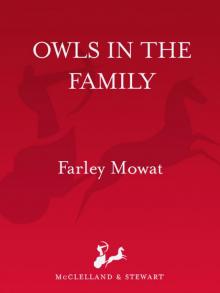 Owls in the Family
Owls in the Family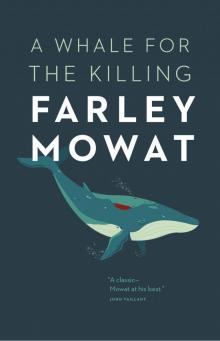 A Whale for the Killing
A Whale for the Killing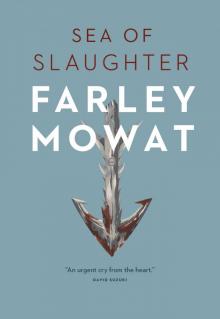 Sea of Slaughter
Sea of Slaughter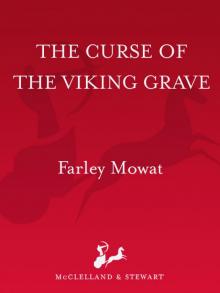 The Curse of the Viking Grave
The Curse of the Viking Grave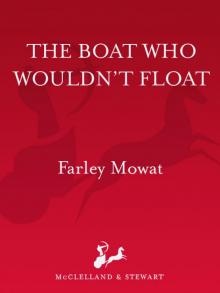 The Boat Who Wouldn't Float
The Boat Who Wouldn't Float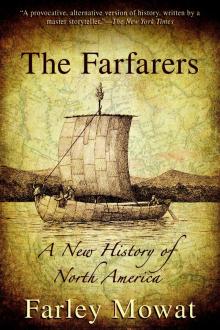 The Farfarers: Before the Norse
The Farfarers: Before the Norse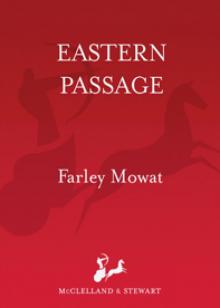 Memoir
Memoir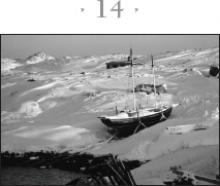 Bay of Spirits: A Love Story
Bay of Spirits: A Love Story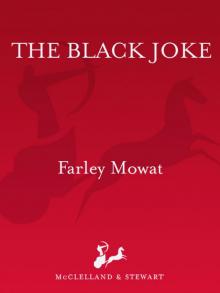 The Black Joke
The Black Joke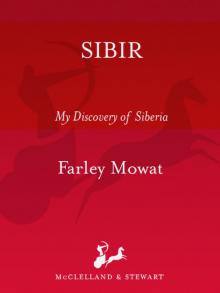 Sibir: My Discovery of Siberia
Sibir: My Discovery of Siberia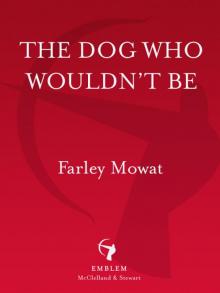 The Dog Who Wouldn't Be
The Dog Who Wouldn't Be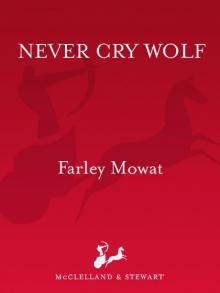 Never Cry Wolf
Never Cry Wolf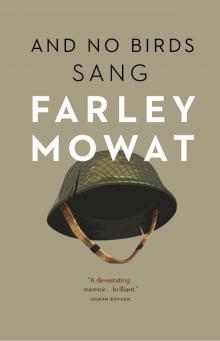 And No Birds Sang
And No Birds Sang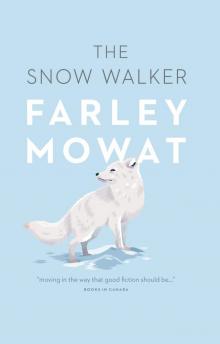 The Snow Walker
The Snow Walker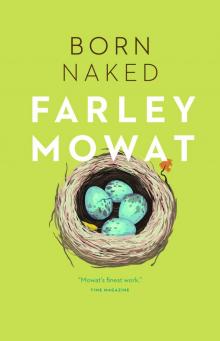 Born Naked: The Early Adventures of the Author of Never Cry Wolf
Born Naked: The Early Adventures of the Author of Never Cry Wolf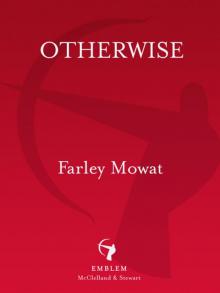 Otherwise
Otherwise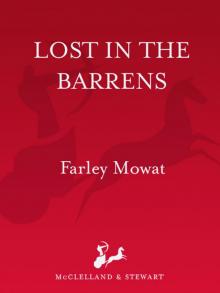 Lost in the Barrens
Lost in the Barrens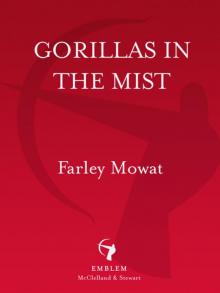 Gorillas in the Mist
Gorillas in the Mist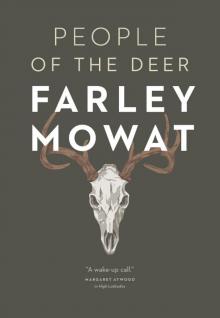 People of the Deer
People of the Deer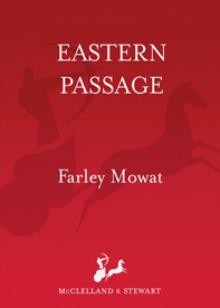 Eastern Passage
Eastern Passage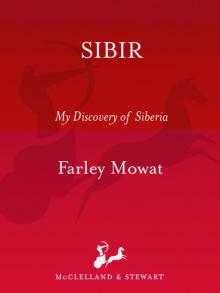 Sibir
Sibir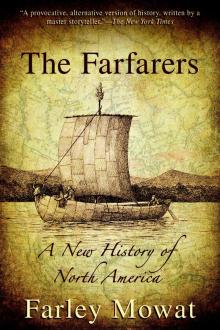 The Farfarers
The Farfarers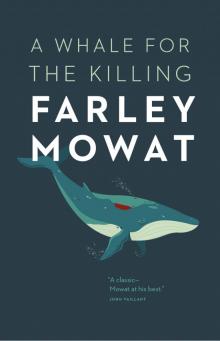 A Whale For The Killing (v5.0)
A Whale For The Killing (v5.0)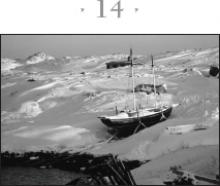 Bay of Spirits
Bay of Spirits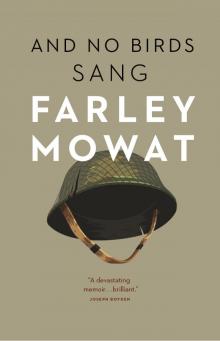 And No Birds Sang (v5.0)
And No Birds Sang (v5.0)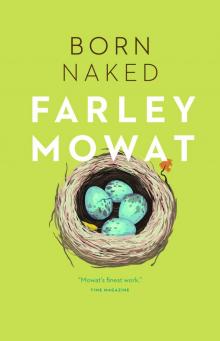 Born Naked
Born Naked